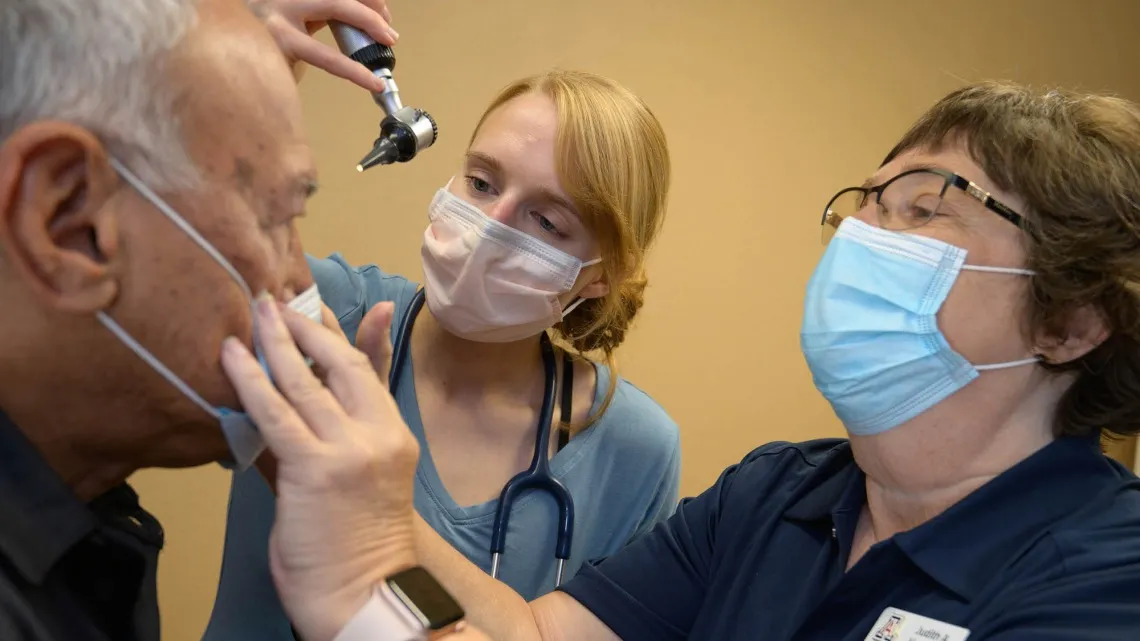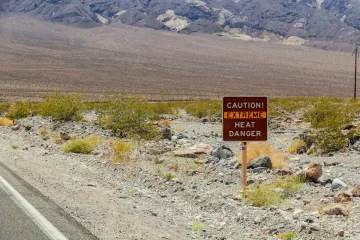Diane and Bruce Halle Foundation grant to support College of Medicine – Phoenix rural health, primary care initiatives
The grant will expand existing rural health initiatives and create the Halle Medical Scholars program, in addition to developing a new network and center to support rural education across the state.

University of Arizona Health Sciences
The University of Arizona Foundation recently received a generous grant from the Diane and Bruce Halle Foundation that will allow the University of Arizona College of Medicine – Phoenix to expand strategic educational initiatives aimed at expanding Arizona’s workforce of primary care physicians and increasing the number of providers in rural areas of the state.
Arizona faces a significant shortage of primary care physicians. A 2023 report from the Center for Rural Health at the Mel and Enid Zuckerman College of Public Health states Arizona meets just 39% of its primary care needs, and it will take 667 primary care physicians to address the shortage. The report also noted Arizona has primary care physician shortages in all counties, but especially in rural areas.

The College of Medicine – Phoenix has a strong rural health component that requires third-year medical students to complete more than half of their rotations in rural and underserved communities. The Diane and Bruce Halle Foundation grant will strengthen and expand existing programs such as the Rural Health Longitudinal Integrated Clerkship and residency programs in rural areas.
“Distinction in delivering exceptional care to those in the rural and underserved areas of our state has always been central to the College of Medicine – Phoenix’s commitment to serving our communities,” said Dean Fred E. Wondisford, MD, MS, MBA. “We are grateful for this funding, which will help us continue to train physicians who understand of the health care needs and challenges of Arizona’s most vulnerable residents.”
The grant will fund a new mentorship program called the Halle Medical Scholars, will provide nontuition funds for selected students and will create a group of faculty mentors to support them through medical school.
It will also allow for the development of the Center for Advocacy and Curriculum Toward Underserved Rural Service through the Western Rural Education Network, which will support rural education across Arizona and help recruit students from rural communities.
“The College of Medicine – Phoenix’s dedication to rural health is outstanding, from its valuable partnership with our Arizona Area Health Education Centers program to the launch of the new Family Medicine Residency – Payson program in partnership with Banner Health,” said Michael D. Dake, MD, senior vice president for the U of A Health Sciences. “The gift from the Diane and Bruce Halle Foundation presents a wonderful opportunity to enhance our educational offerings for the next generation of health care professionals, who will carry the torch of providing compassionate and culturally sensitive care to build healthier communities for all.”
Rural health is a focus of the Halle Foundation, which previously supported the work of the U of A College of Nursing to help students from rural and underserved communities. The foundation, founded in 2002 by Diane and Bruce Halle, provides philanthropic resources for organizations working in the fields of human services, health and medical, education, arts and culture, and spirituality. Its goal is to ensure that all people can build healthy, productive and inspiring lives.
“I’m grateful for the long-standing generosity of the Diane and Bruce Halle Foundation. Through this gift, the College of Medicine – Phoenix will help carry on Diane and Bruce Halle’s legacy of caring for people,” said John-Paul Roczniak, president and CEO of the University of Arizona Foundation. “This support will advance important work addressing the statewide rural health care shortage, all focused on medical students and patients.”
The Diane and Bruce Halle Foundation grant is part of the Fuel Wonder campaign, the university's $3 billion fundraising effort. Gifts already made to the campaign are giving every student access to a cohesive ecosystem of support, powering new insights into the human immunome, and transforming research in areas including cancer, engineering, space sciences and the humanities.

